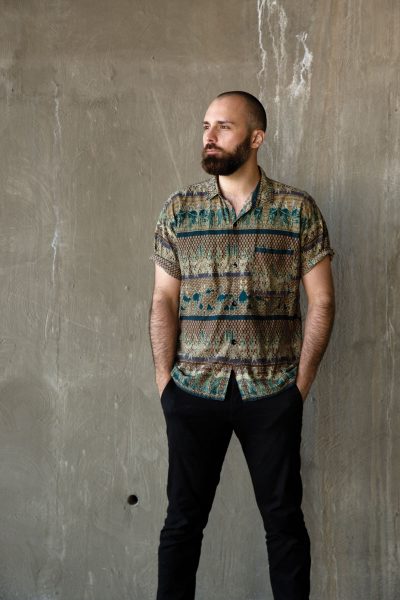The concept was pure, simple, true. A come-as-you-are, judge-free zone. But billing a “safe space” in Omaha’s nightlife scene comes with a great deal of responsibility. House of Loom co-owner Brent Crampton understands this responsibility from experience.
Crampton, 32, fathered Loom 10 years ago. Initially started as a pop-up dance party, Loom circulated through some of the city’s most prestigious venues, operating under the values of inclusivity, unity, creativity, and respectability.
 “In that era, we were known as a space open to all different types of people that might not normally interact,” Crampton explains in a recent interview. “A space for them to go and be accepted.”
“In that era, we were known as a space open to all different types of people that might not normally interact,” Crampton explains in a recent interview. “A space for them to go and be accepted.”
Crampton is a calm, soft-spoken man, full of purpose and persistence. He is keen to talk about Loom’s infancy and how it evolved into a popular brick-and-mortar nightspot on South 10th Street. A place where anyone can relax and fully express themselves without fear of being judged or harassed on account of sex, race, gender identity, religious views, age, or physical or mental ability.
Running a “safe space” is about sharing and creating, trying to build something better. It is not just a nightclub or bar, but a place that connects people on a higher level and facilitates meaningful discussions.
Music is not just a backdrop, Crampton says.
“Music is very much at the forefront, and the events we do take the focus, but the vehicle that we use, to do our best to create a harmonious environment, is rooted in saferspace principle.”
Unintentionally, Crampton, who also serves as the director of management talent and booking, has brought Omaha to the forefront of several larger discussions on what our city could do to make it a more inviting and welcoming place for all.
Crampton collaborated with countless arts and community organizations to help make Omaha a more culturally progressive city. In fact, he sits on the board of Safe Space Nebraska, a grassroots, local non-profit that formed as a response to the need to simply enjoy a good night out, free of assault or harassment.
People are becoming more aware of harassment issues, Crampton says, and realizing they should have a support system to counter harassment when it happens.
He recently took part in a Huffington Post live webcast discussion about safe spaces and why they’re essential to nightlife. He has also met with other local bar owners to discuss how their businesses could become more inclusive and safe for all to enjoy.
Crampton is optimistic about creating an environment filled with like-minds—an optimism that many bar owners quickly replace with the very real practicalities of running a dimly lit bar with loud music and unwelcomed alcohol-induced conversations. Women’s bottoms are grabbed. Harassment happens.
It’s a pervasive issue, Crampton says. One that shouldn’t be ignored.
“Responsibility,” Crampton says. “We need to be conscious of that and how to respond as bar owners.”
Everyone is hyper-aware of the value of space. Safety implies privacy, but even with a strict door policy, in bars, the variables are much less controllable.
Crampton has established a code of conduct and stuck to it. As patrons visit, they’re encouraged to respect the House of Loom values. In fact, the nightspot is one of the first Omaha bars to initiate a zero-tolerance policy for any form of harassment, Crampton says. If patrons feel unsafe, they are encouraged to notify staff immediately in order to remove the person responsible for the harassment. The incident is then documented in a report.
The House of Loom’s code has inspired many, igniting a current of social rebellion in Omaha’s nightlife scene. But as with all paradigm shifts, people must understand the new way of thinking before change happens on a larger scale.
Crampton continues to strive for an inclusive and safe community. He considers it his passion project.
“Positive response. It empowers people,” he says. “Collectively we can change nightlife culture.”
Visit www.houseofloom.com for more information.












